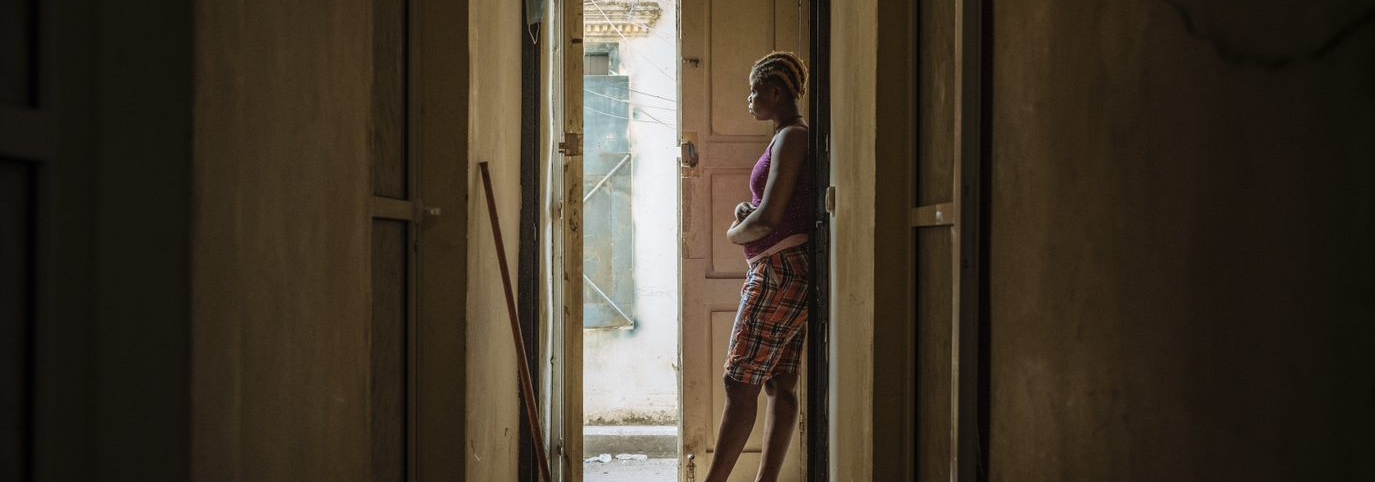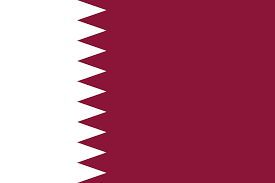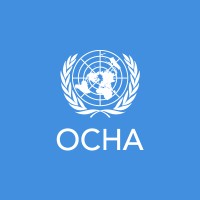IOM Vision
IOM Lebanon aims to address the vulnerabilities of migrants, displaced populations and vulnerable Lebanese communities amid crisis conditions and supports efforts to mitigate drivers of irregular migration. In areas with large concentrations of displaced populations, IOM aims to understand the drivers of inter-community tensions and address their root causes in an approach centred on 'Do No Harm' and conflict-sensitive principles. IOM is committed to safe and orderly migration, ensuring migrants and displaced populations are treated with dignity and respect and works to protect their rights against exploitation or abuse.
Objective
Saving lives and protecting people on the move
- Migrant Workers harshly affected by the country's economic decline, COVID-19 related disruptions and the 4 August 2020 Beirut Port Explosion, many of which have been deprived of their livelihoods and lack the financial and legal support to leave Lebanon, placing them without means to sustain themselves.
- Syrian Refugee households primarily residing in informal refugee shelters in the North and Bekaa, and living below the Survival Minimum Expenditure Basket. Caseloads will often originate from municipal areas experiencing or at risk of experiencing community tensions with local residents, due to under-resourced municipal services resulting from increased local populations.
- Economically vulnerable Lebanese households, particularly those residing in areas experiencing or at risk of experiencing heightened community tensions with adjoining Syrian refugee populations in the North and Bekaa, suffering unemployment, excluded from social safety nets, and identified as living below the Survival Minimum Expenditure Basket, and by consequence food insecure.
IOM plans to provide humanitarian voluntary return counselling and humanitarian assistance to migrant workers identified as vulnerable and who wish to return to their country of origin. Activities and support will include:
- Provision of outreach and counselling.
- Facilitation of travel documents and exit permission in coordination with relevant Lebanese authorities.
- Implementation of pre-departure medical evaluations and checks to ensure fitness for travel, including PCR tests where necessary.
- Provision of temporary accommodation if needed.
- International travel to their country of origin including assistance at airports.
IOM aims to provide cash-based assistance to vulnerable migrants, and vulnerable host communities and Syrian refugees in response to deteriorating economic conditions across the country, the socio-economic impacts of COVID-19, and the damage caused by the 4 August 2020 Beirut Port Explosion. Assistance will include:
- Provision of cash assistance to stranded migrants, Syrian refugees and vulnerable Lebanese affected by the economic crisis, the COVID-19 pandemic, and the Beirut Port Explosion.
- Provision of emergency conditional cash for food assistance to food insecure and stranded migrant workers.
IOM aims to mitigate the impact of heightened barriers to lifesaving health services arising from economic hardship and COVID-19. IOM will assist vulnerable groups access a health system that is increasingly overstretched. Furthermore, the stress of living and working conditions in Lebanon is causing a rise in levels of negative coping mechanisms. In coordination with the Health Cluster and Ministry of Health, IOM will aim to address the current health needs of migrants, Syrian refugees, and vulnerable Lebanese through:
- Provision of basic healthcare services through Mobile Medical Campuses in Beirut, North Lebanon and the Bekaa.
- Subsidizing consultation and transportation fees for three Primary Healthcare Clinics in Beirut with eligibility criteria determined by clinics.
- Provision of vaccinations for common diseases such as measles, to migrants, Syrian refugees, vulnerable Lebanese, and their dependents.
- Provision of pre-travel PCR tests to migrants receiving assisted voluntary return support to their country of origin.
- Provision of maintenance support to a COVID-19 Isolation Centre in Beirut, catering to migrants, Syrian refugees, and vulnerable Lebanese.
- Dissemination of COVID-19 awareness material and distribution of Personal Protective Equipment through Mobile Medical Campuses.
IOM will contribute to efforts to combat COVID 19 and promote WASH to better enable beneficiaries to adapt preventative measures against transmissible diseases. This will be achieved via the provision of the following supplies to migrants, Syrian refugees, and vulnerable Lebanese:
- Provision of personal protective equipment (PPE) supplies such as gloves, vizors and masks.
- Provision of hygiene and sanitation kits to promote WASH. including menstrual hygiene.
- Distribution of risk communication and community engagement (RCCE) materials on improved hygiene practices and effective use of PPE to improve communities' understanding of and compliance to COVID-19 preventative measures. These will be distributed via various modalities, including MHPSS and other awareness activities.
- Implementation of Community Support Projects (CSPs), which may include improvements to local water supply and/or enhanced waste-management facilities and will be determined via consultation with community representatives.
IOM aims to assist stranded migrants in Lebanon who have no livelihoods due to the severe economic contraction in the country and who are facing obstacles in returning to their country of origin. IOM plans to support migrants’ access to consular services and facilitate the issuance of exit visas to enable their return. This will be done via:
- Registering and screening of migrants to assess their needs and refer them to the relevant department.
- Individual case management for humanitarian voluntary return assistance in coordination with Movement and Resettlement Unit.
- Coordination with embassies, consulates, and the humanitarian community to identify those in need of assistance.
- Close work alongside embassies, consulates, and Lebanon's immigration agency to facilitate travel documentation.
- Contact with IOM offices in countries of origin if beneficiaries need reintegration support.
IOM’s Rapid Response Teams will continue to identify stranded migrants in need of urgent support. This will include registering, screening, and referring such cases to appropriate assistance such as food, shelter, and individual case management to those suffering forms of exploitation and those wishing to return home. IOM's response will continue to play a leading role in assisting stranded migrants. Secondly, as a leading advocate for improved migration policies in line with humanitarian standards, IOM will continue efforts to promote anti-trafficking laws and reform the current migration system to better guarantee respect for migrant rights. Activities include:
- Provision of individual and cross border case management.
- Provision of counter-trafficking specialized services.
- Referrals to MHPSS or other types of specialized assistance.
- Provision of technical assistance to enhance the implementation of national standard operating procedures to identify, assist and protect Victims of Trafficking.
Objective
Driving solutions to displacement
IOM will aim to strengthen the capacity of state and non-state actors in Lebanon via capacity building and service provision in areas such as health, border crossings, local NGOs, and community centres. IOM will target vulnerable and stranded migrants facing a lack of livelihoods, food security, shelter or essential healthcare and services; migrants who are victims of abuse linked to their informal status; and Syrian refugees and vulnerable Lebanese in areas facing community tension and at risk of conflict.
IOM is aiming to strengthen community-based outreach to migrants, Syrian refugees, and vulnerable Lebanese through implementation of Mental Health & Psychosocial-Support (MHPSS) activities, including:
- Implementation of MHPSS outreach.
- Conduct of information and awareness sessions.
- Provision of group and individual counselling.
- Provision of art-based activities.
- Strengthening of communication and feedback channels.
- Provision of onward referral to other IOM assistance.
- Conduct of capacity building trainings to local partners.
IOM aims to reinforce national capacities to combat COVID-19 by supporting a major isolation facility in Beirut and more general support to the health system in light of increased pressures resulting from COVID-19. IOM is also supporting Lebanon's border management agencies in disease management and COVID-19 prevention. Activities will include:
- Support for the maintenance of the COVID-19 Isolation Center via the provision of material supplies. The Isolation Center houses vulnerable groups, such as migrant, and Syrian refugees.
- Provision of WASH items including hygiene kits and COVID-19 PPEs to a range of health and non-health beneficiaries. This support will also target General Security border staff at Lebanon's Points of Entry, and patients and personnel in the isolation centre.
- Continuation of support to Lebanon's National Tuberculosis & Aids Programmes, via a clinic in Beirut and Community Health Workers conducting outreach to mitigate impacts of mobility restrictions arising from COVID-19.
- Subsidizing costs related to consultation and transport fees at three Primary Healthcare Clinics in Beirut to enhance access to healthcare among vulnerable groups.
IOM's Community Stabilization Programmes in North Lebanon and Beqaa Valley aim to target localities experiencing tension and at risk of local violence between refugee and host communities due to rising economic hardship and scarcity of welfare provision and local services. Through partnerships with local NGOs and cross-community representatives, IOM aims to reduce community tension in the following ways:
- Implementation of Community Support Projects to address short term needs identified through participatory processes
- Provision of capacity support to municipalities for dialogue and conflict prevention and to support local crisis response.
- Conducting youth initiatives (summer camps, artistic activities, peacebuilding clubs, campaigns etc.) to promote active involvement of youth in local communities.
- Implementation of a media initiative to diffuse tension, capacity building, training/ sensitization of local authorities and civil society on how to engage with media to promote objective and positive reporting. Training of media personnel on fact-checking and transparent reporting.
IOM seeks to build resilience to the negative impacts of health crises on vulnerable Lebanese, refugee and migrant workers, by addressing problems related to diminished livelihoods, food insecurity, tensions or conflicts over resources such as medical or sanitation equipment, social exclusion such as poor access to health services and communications, or constraints on engagement in local decision making related to the epidemic. Epidemics increase economic stress and social fragility in communities already experiencing chronic vulnerability. IOM aims to respond to the economic impact of the health crisis by catering to those who have lost their livelihoods due to the COVID-19 related economic contraction. This will include:
- Provision of career guidance, awareness-raising sessions, job matching, and work-based trainings, including training in the production of high demand products (e.g. PPEs).
- Provision of income-generating activities through Cash for Work schemes at a municipal level.
- Support to and strengthening of small and medium-sized enterprises through grants to enable job retention/creation, boost productivity and competitiveness.
- Engagement of medical personnel on a part-time basis to assist vulnerable migrant workers and Lebanese citizens.
- Enhancement of local capacities to provide services to mitigate the negative socio-economic impact of the crisis.
Objective
Strengthen preparedness and reduce disaster risk
Given Lebanon's deteriorating conditions, IOM will work to support the capacity of state and non-state actors by providing equipment to border agencies, health services and vulnerable communities. A special focus will be placed on mitigating risks of increased irregular migration by preparing relevant authorities in emergency response and prepositioning IOM as a first responder at Points of Entry.
IOM's Emergency Preparedness response is primarily geared toward mitigating the dangers associated with irregular migration attempts from Lebanon, containing COVID-19, and updating Standard Operating Procedures at Points of Entry to meet future emergencies. Activities will include:
- Establishment of working groups with government ministries to enable IOM's immediate access to those in need following incidents at sea.
- Continued coordination with other UN bodies to share information.
- Prioritization of the International Border Management Unit's work to build the capacity of Lebanon's General Security via the provision of new training facilities, technical training such as on Sea & Rescue, and health facilities at Points of Entry.
- Continuation of support to government entities in responding to the COVID-19 epidemic, primarily through support to the Isolation Center, and the provision of PPEs and hygiene supplies.
Given the numerous health shocks impacting the health system in Lebanon and limited access to health services for migrants, Syrian refugees and vulnerable Lebanese, IOM aims to support health preparedness initiatives alongside the government in order to strengthen the systems resiliency and readiness. Activities will include:
- Provision of medical supplies and equipment to be utilized for first aid and in response to emergencies (e.g. stretchers, fire extinguishers, personal protective equipment, medical supplies and first aid bags).
- Conducting First Aid and Emergency Preparedness Trainings at municipality levels.
- Implementation of community engagement linked to disease surveillance, risk communication and community engagement (RCCE) and infection prevention and control (IPC).
IOM is engaged with improving facilities at Points of Entry, in line with the obligations and recommendations outlined in the International Health Regulations (2005). These efforts will seek to improve border management and provide health facilities at points of entry to enhance disease control and border management response to COVID-19. Activities will include:
- Establishment of health clinics at Lebanon’s Points of Entry, with medical staff and ambulance services.
- Collaboration with the US Center for Disease Control to revise and improve Standard Operating Procedures for control of COVID-19 and other communicable diseases at three Points of Entry, in collaboration with Lebanon's General Security.
- Training to General Security border staff in Search and Rescue at Sea, fraud detection, first aid and disease control measures.
- Provision of COVID-19 preventative supplies at Points of Entry.
- Provision of miscellaneous supplies including fire extinguishers, stretchers and uniforms.
Objective
Contribute to an evidence-based and efficient crisis response system
IOM’s goal over the next twelve months is to collect enhanced population and demographic data on socioeconomically vulnerable communities in Lebanon falling under IOM’s mandate. This extends to all foreign nationals, with a strong focus on migrant workers. Through two monitoring programmes, IOM aims to capture data highlighting levels of economic hardship in different areas of Lebanon’s major cities before expanding to towns and villages across the country. This data will capture needs and vulnerabilities to inform future programming and provide caseloads for IOM’s various referral pathways. It will engage different key informants with a crucial role for municipalities across Lebanon. IOM's data will be shared publicly and benefit government agencies and ministries such as the Ministry of Health, Ministry of Social Affairs, intergovernmental organizations and local NGOs.
IOM Lebanon's Displacement Tracking Matrix (DTM) team has completed the Migrants Presence Monitoring (MPM) pilot programme throughout Beirut in November 2020 and is now expanding the programme nationwide. In addition, DTM resources will form part of IOM's irregular migration response by helping to identify demographic groups and physical locations where irregular migration is at risk of occurring. This will include:
- Continuation and expansion of MPM data collection to compile standardized demographic data on a neighbourhood basis, with data disaggregated by nationality and gender, in order to inform geographical targeting of assistance programming and provide caseloads of migrant beneficiaries.
- Collection of data via interviews with key-informants such as community leaders and municipality officials, to create evidence-based targeted and impactful programming and policy.
- Analysis of the findings of the MPM to extract specific data and trends regarding in-country migrant demographics.
- Provision of access to wider data collected to state entities and the humanitarian community, to inform programming.
- Implementation of multi-sectorial needs and vulnerability assessments to determine needs per neighbourhood and/or population group.
- Conducting monitoring activities in North Lebanon with DTM flow-monitoring.
- Awareness-raising activities to sensitize vulnerable groups on the risks and dangers inherent in irregular migration.
Lebanon
The map used here is for illustration purposes only. Names and boundaries do not imply official endorsement or acceptance by IOM.
Figures are as of 31 December 2023. For more details of IOM's operational capacity in country, please see the IOM Capacity section.















